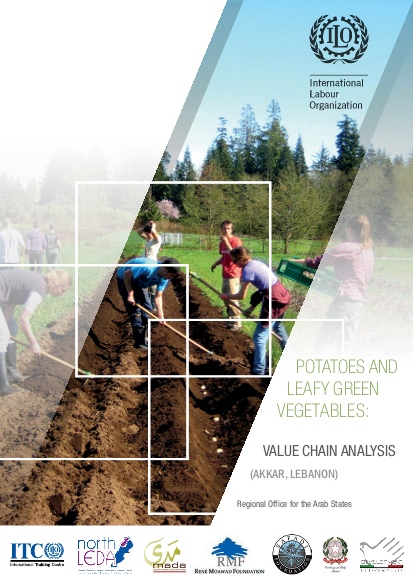
In response to the Syrian crisis, the ILO initiated a project in Akkar (North of Lebanon) in June 2014 with a focus on employment and livelihood issues. The aim of this project is to enhance the resilience of entrepreneurs, including farmers and workers affected by the Syrian refugee crisis in rural areas. The ILO contracted the North Lebanon Local Economic Development Agency (LEDA) to facilitate dialogue on local economic development (LED) and guide the sector selection based on a shortlist of four eligible sectors, which LEDA based on “Making markets work for the poor” (M4P) criteria. Participants of the LED dialogue approved the vegetable sector due to its high potential and its ability to meet the criteria required by the ILO (labour intensive, large-scale impact, potential for systematic change in the short to medium term and for improving growth and access).
Following the LED dialogue, a value chain analysis workshop was conducted in Chekka, and based on the same ILO criteria mentioned above, it was concluded that the project should focus on two value chains: Potatoes and leafy green vegetables. Once the two value chains were selected, a research team was formed to conduct primary and secondary market research and a complete value chain analysis in order to identify the constraints and strengths in each value chain.
